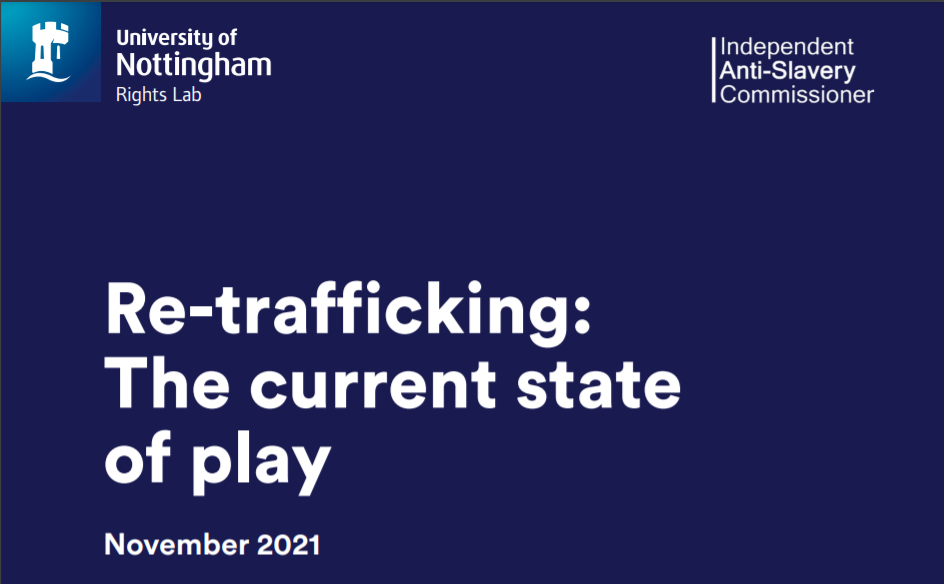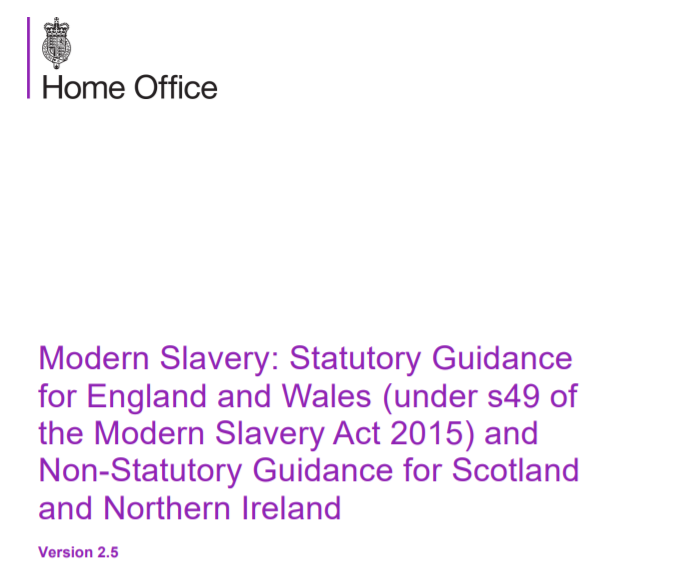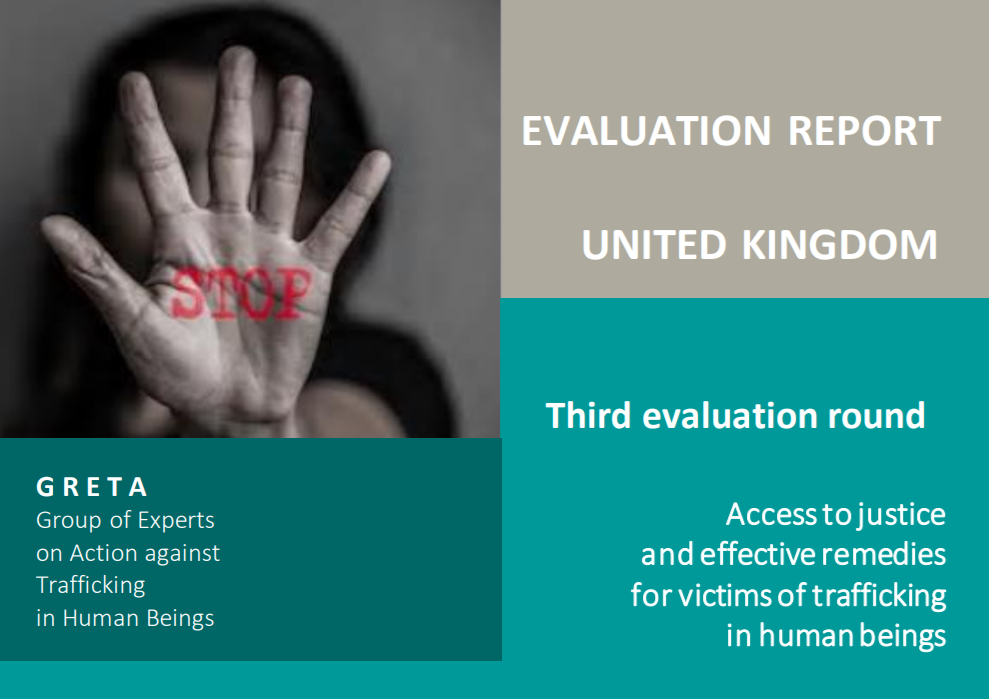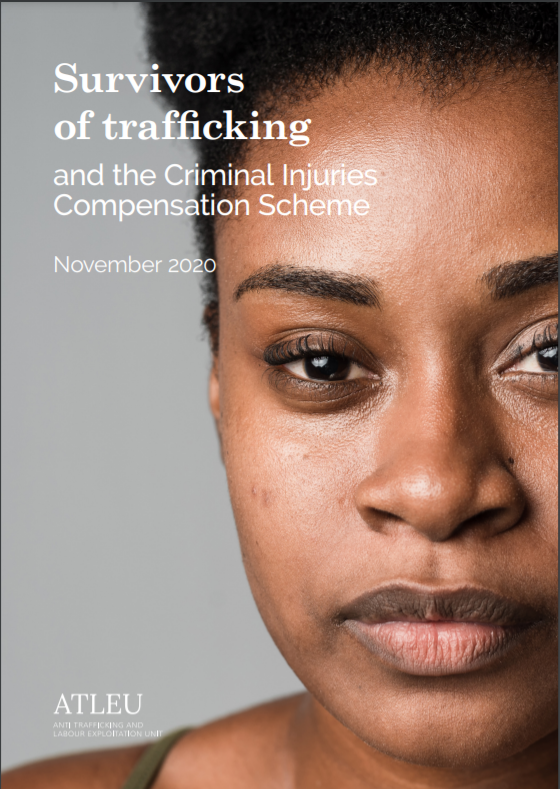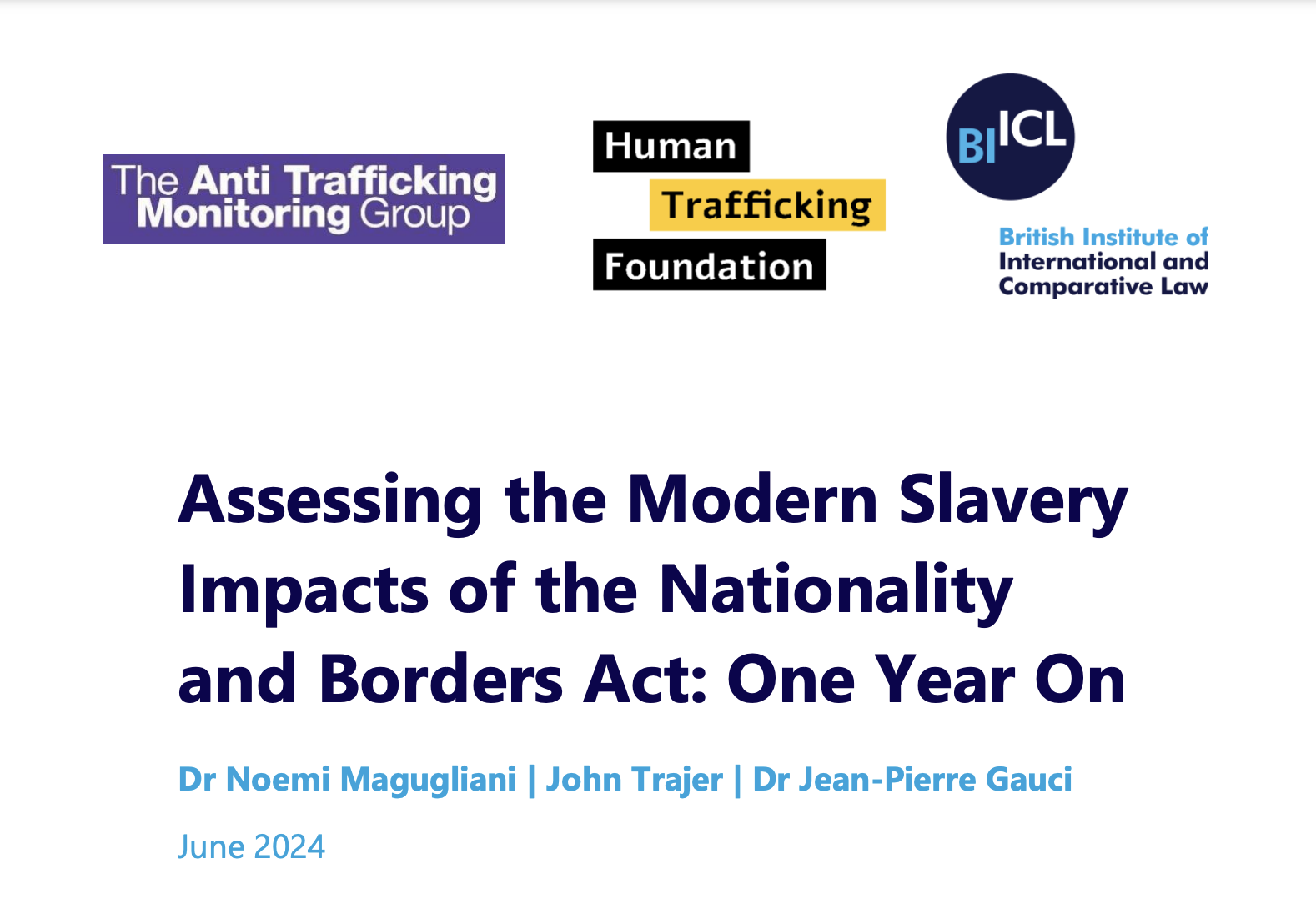
This month, British Institute of International and Comparative Law, with Human Trafficking Foundation and the Anti-Trafficking Monitoring Group released a report to assess the impact of the UK Nationality and Borders Act. After passing in April 2022, the provisions relating to modern slavery came into effect in January 2023. The report examines impacts over the last year on decision making outcomes, people with lived experience of modern slavery, and on organisations in the modern slavery sector.
As detailed further in this report, the Nationality and Borders Act made critical changes to processes addressing Modern Slavery in the UK, including:
- new definitions of ‘victims’ of modern slavery and human trafficking
- changes to the definition of the ‘reasonable grounds’ decision within the National Referral Mechanism
- the introduction of a procedure to exclude modern slavery protections on grounds of public order and bad faith
See here for or the full report Assessing the Modern Slavery Impacts of the Nationality and Borders Act: One Year On.
‘Re-trafficking: The current state of play’ is a new report published by the Independent Anti-Slavery Commissioner, Dame Sara Thornton, and the University of Nottingham Rights Lab.
The report examines the evidence, data and literature on re-trafficking, and was commissioned in response to lack of emphasis on preventing re-trafficking shown by policymakers and government. The Independent Anti-Slavery Commissioner states that the knowledge base on re-trafficking is largely anecdotal and as there is no agreed definition of re-trafficking there are further difficulties in attempts to collect and assess re-trafficking data.
The report declares that does not propose recommendations but highlights three areas to be explored further in order to better understand re-trafficking. Those three areas are:
- Establishing a definition of re-trafficking
- Addressing the lack of data on prevalence of re-trafficking
- Developing dedicated reintegration pathways for survivors remaining in the UK or returning to another country
For the full report, please see here.
You can also find the press release for the report here.
Earlier in November 2021, UK’s Home Office published new statutory guidance on identifying and supporting modern slavery victims. Aimed at competent authority staff in England and Wales, the guidance explores what amounts to slavery, human trafficking and exploitation.
The guidance emphasis that human smuggling is not human trafficking and explains the differences between them, as well as, providing a list of myths about modern slavery and dispelling them.
The guidance also emphasises that competent authority staff, while not First Responders, should be aware of the indicators of modern slavery. It further explains system of identifying victims, lists the non-public authorities that are First Responders and further lists non-First Responder Organisations involved in tacking modern slaver and human trafficking.
The guidance then focuses on the process of referring potential victims, working with vulnerable people and the NRM decision making process. Lastly, it explores the support for adult and child victims.
Please see the government website for the full guidance.
The Council of Europe’s Group of Experts on Action against Trafficking in Human Beings (GRETA) has published its third report on the United Kingdom.
The core recommendation of the report is that the UK should improve the identification of trafficking victims. The report notes the low level of convictions compared to the number of identified victims, and highlights the effect of the cuts to funding for the criminal justice system and the resulting insufficient resources. Therefore, the report emphasis that free and timely legal aid should be provided to victims of human trafficking, whilst psychological assistance
For the full findings and recommendations please see the report here.
‘Survivors of trafficking and the Criminal Injuries Compensation Scheme’ is a report by the Anti-Trafficking and Labour Exploitation Unit (ATLEU) from November 2020. ATLEU is a charity supporting victims of trafficking and labour exploitation and providing legal representation to victims.
The report is based on 30 cases conducted by ATLEU themselves and further findings from a survey of professionals. The purpose of the to survey was to identify if the experiences of other professionals representing trafficking victims in making CICS claims were similar to those of survivors represented by ATLEU. The survey was sent to solicitors and support workers working with survivors in making CICS claims.
ATLEU concludes that the CICA scheme is not fit for purpose and is not accessible to the majority of survivors. From ATLEU’s experience, the vast majority of survivors are refused compensation in circumstances where it ought to be granted. They have made extensive recommendations as to the improvement and modifications of CICA, which can be found in the full report.
You can find the full ATLEU report here.
The Freedom Fund have published a paper reviewing the use of Behaviour Change Campaigns, which have been used in healthcare and development sectors to try and influence and transform the behaviour of individuals. The paper reviews Behaviour Change Campaigns which have targeted issues such as child abuse, violence against women, and sexual violence in an effort to develop a future campaign that might tackle modern slavery and child sexual exploitation in Kathmandu. This paper has drawn on 28 different studies.
The paper has reached several conclusions. The main findings are:
- The focus needs to be on injunctive not descriptive norms;
- Behaviour Change Campaigns are effective in a wide variety of mediums. However, this is not to say that they will be effective in every medium and context.
- Campaigns often succeed in bringing about positive change in the targeted individuals. However, there is some evidence that adverse effects can result.
- Evaluation must be embedded from the onset of the Behavioural Change Campaign. Since Behaviour Change Campaigns can have adverse effects the continual effectiveness of the campaign must be subject to constant evaluation.
The report was released in January 2019, and can be found here.
The Advocates for Human Rights published their labour trafficking protocol guidelines on the 31st of January 2019. The guidelines are designed to help communities identify and respond to labour trafficking victims throughout Minnesota, with a particular focus on young victims in their early 20s and younger. The guidelines draw on data collected from over 100 experts and are designed to account for the complex needs of a region that has rural, suburban and urban environments.
The protocol guidelines consist of 6 sections which give:
- Background and overview to labor trafficking.
- The universal protocol, which provides guidelines to the provision of an effective and comprehensive response to labor trafficking, including sections on collaborative responses, identification, and victim protection.
- A protocol implementation worksheet as a simple tool to assist communities plan their responses to labor trafficking.
- Sector specific protocol guidelines for use in conjunction with the universal protocol;
- Recommendations for changes to the law and policy to improve Minnesota’s response to labor trafficking victims.
- Appendices.
The report was funded Office for Victims of Crime, Office of Justice Programs, U.S. Department of Justice, and the Minnesota Department of Health. The content is solely the work of The Advocates for Human Rights.
The Full report can be found here.
The healthcare system plays a fundamental role in human trafficking identification as
well as on going survivor support. According to reports, many enter the healthcare
system at some point during their process of exploitation. These scenarios are critical
opportunities that are missed if healthcare staff are not equipped to identify victims of
trafficking.
ICD-10-CM abuse codes are used for differentiating victims of human trafficking from
other victims of abuse. The ICD-10 coding has been updated for clinicians to classify a diagnosis correctly in the case of trafficking and to provide appropriate treatment, while tracking the reoccurrence of labour and sexual exploitation of victims.
For the American Health Associations Hospitals Against Violence release of the new ICD-10-CM codes to classify human trafficking abuse as released in June 2018, read here.
The Local Authority Support for Unaccompanied Asylum-seeking Children is a fact sheet by Coram Children’s Legal Centre that details information for local authorities who are supporting unaccompanied asylum-seeking children. It provides key information from the Children Act 1989, National Transfer Scheme, Entitlements, Financial support, Advocacy, Legal representation and Challenging inadequate support.
Local authority support for unaccompanied asylum-seeking children (UASC) by Coram, read here.

